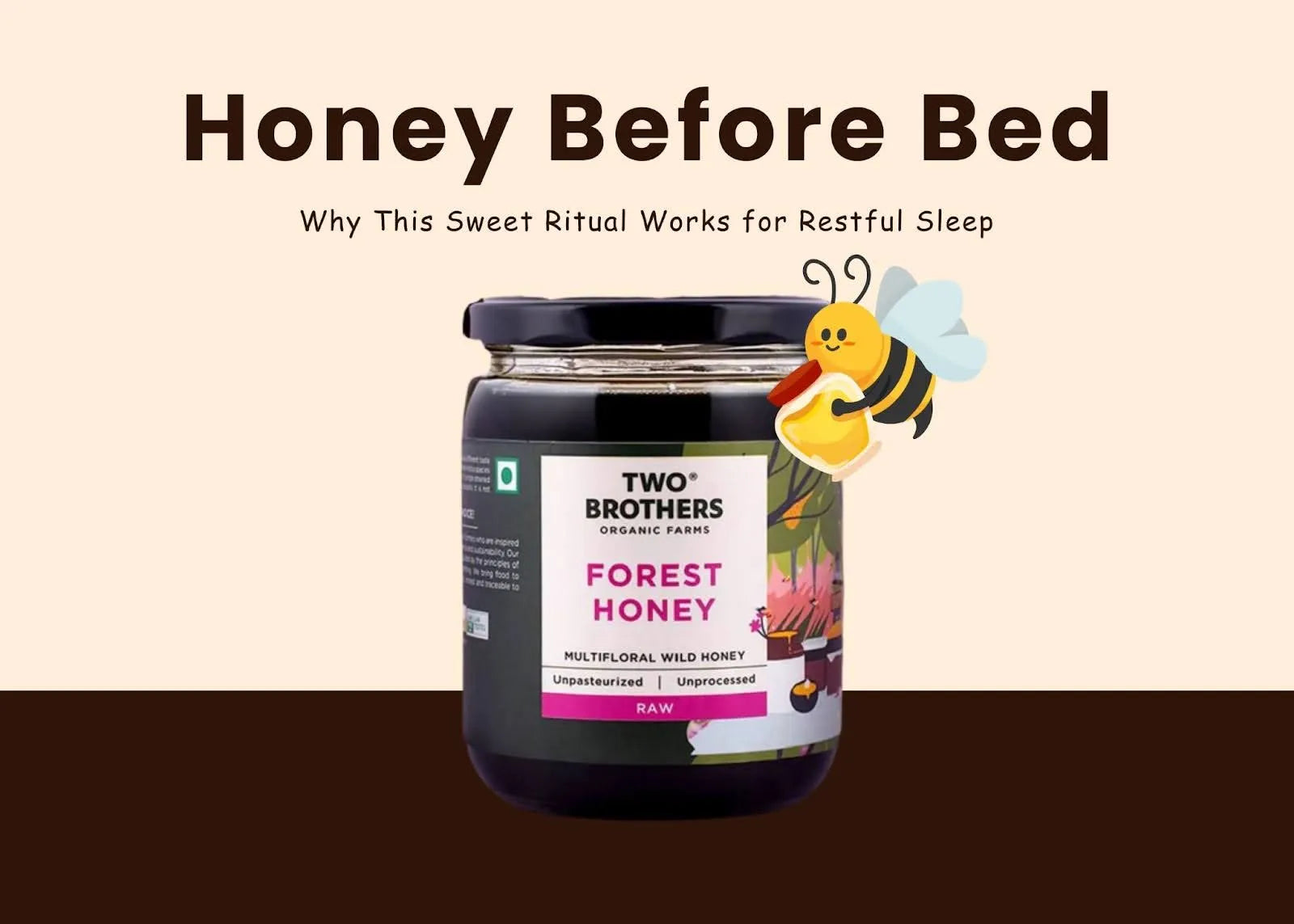As a parent, you're constantly making choices that shape your child’s health. One question that often arises is whether jaggery is a better alternative to refined white sugar in your child’s diet. With so many products labelled “natural” or “organic” today, it’s easy to get confused about what’s truly healthy for kids.
Let’s cut through the noise and explore why jaggery, especially organic jaggery, is gaining popularity in family kitchens, what makes it different from regular sugar, and how you can safely introduce it into your little one’s meals.
What Is Jaggery and How Is It Made?
Jaggery, also known as “desi gud”, is an unrefined natural sweetener made from sugarcane juice or palm sap. Unlike sugar, which goes through heavy refining and bleaching, jaggery is produced using traditional methods that retain its natural molasses, minerals, and flavor.
To make jaggery, fresh sugarcane juice is boiled in large iron pans over firewood or cow dung cakes until it thickens. It’s then stirred continuously and poured into molds to cool. The result? A golden to dark brown block of natural sweetness that retains trace minerals like iron, calcium, magnesium, and potassium.
If you're searching for pure jaggery online, one excellent option is the Two Brothers Organic Farms Jaggery. This artisanal jaggery is made without chemicals or synthetic additives, exactly how food should be for growing children.
Nutritional Benefits of Jaggery Over Sugar
1. Rich in Iron and Minerals
One of the biggest jaggery benefits for kids is its iron content. Children, especially toddlers and preteens, are at risk of developing iron deficiency due to rapid growth. Jaggery helps improve hemoglobin levels, making it a great natural aid in preventing anemia.
2. Better Digestive Health
Unlike sugar, jaggery stimulates digestive enzymes and can help reduce bloating, constipation, and indigestion issues that many children face due to poor dietary fiber intake.
3. Natural Immunity Booster
Organic jaggery contains antioxidants like selenium and zinc, which help build resistance against seasonal infections. Including jaggery in your child's winter diet can guard against coughs, colds, and flu.
4. Lower Glycemic Index
While both sugar and jaggery have high calorie content, jaggery has a slightly lower glycemic index (GI). This means it releases energy slowly, helping kids feel fuller for longer and preventing sudden spikes in blood sugar levels.
5. No Added Chemicals
Most refined sugar contains harmful chemical residues from bleaching agents like sulphur dioxide. On the other hand, natural jaggery, especially from a natural jaggery shop like Two Brothers Organic Farms, is processed without chemicals, preservatives, or artificial flavors.
If you're looking to buy jaggery online, be sure to choose a brand that emphasizes chemical-free production. The Jaggery from Two Brothers is USDA Certified Organic and handcrafted using traditional bhatti (wood-fired stove) methods.
Health Risks of Sugar and Why Jaggery Is a Better Alternative
Most children love sweets, but refined sugar is more of a health hazard than a treat.
High consumption of white sugar can cause:
-
Obesity: Refined sugar is calorie-dense and addictive, often leading to excess consumption.
-
Hyperactivity: Sugar crashes can cause mood swings and erratic behaviour in kids.
-
Dental Cavities: Sugar promotes the growth of harmful bacteria that attack tooth enamel.
-
Lower Immunity: Excess sugar weakens the immune system, making kids prone to infections.
Jaggery, when used in moderation, doesn’t produce the same inflammatory response. Plus, its mineral-rich composition means you’re not just feeding your child “empty calories,” but giving them essential nutrients.
It’s no surprise that more parents are searching for jaggery for kids or jaggery near me as they begin switching to cleaner sweetening options. Choosing organic jaggery brands is a smart way to avoid the hidden health pitfalls of regular sugar.
Are There Any Downsides to Using Jaggery?
Even though jaggery is more nutritious than sugar, it’s still a sweetener and like all sweeteners, it should be used in moderation.
Some potential downsides include:
-
Calorie-dense: Jaggery is high in calories, which means overconsumption can still lead to weight gain.
-
Possible Allergies: Rarely, some children may be allergic to products made from sugarcane.
-
Digestive Sensitivity: For children with very sensitive stomachs, introducing too much jaggery suddenly might cause slight bloating.
That’s why choosing pure jaggery from a trusted jaggery supplier near me (or online) is crucial. The less adulterated the jaggery, the safer it is for little tummies.
To ensure you're buying the best jaggery brand, look for jaggery that is:
-
Free from added sulphur or phosphoric acid
-
Brown to golden brown (not snow white)
-
Slightly grainy and aromatic, not glossy or sticky
Brands like Two Brothers Organic Farms check all these boxes. Their jaggery is made using age-old bhatti techniques and tested for heavy metals and chemical residues.
How to Incorporate Jaggery Safely Into Kids’ Diets
Replacing sugar with jaggery isn’t just about health, it’s about flavor and familiarity. Jaggery has a deep, rich caramel-like taste that works wonderfully in both sweet and savoury dishes.
Here are some kid-friendly ways to use jaggery:
-
Sweeten warm milk with grated jaggery instead of sugar
-
Add it to homemade laddoos, chikkis, or porridge
-
Use jaggery in pancakes, muffins, or cereal bars
-
Add a pinch to dal or sambhar for a sweet twist that kids love
Start small just a spoonful a day and always use high-quality, organic jaggery like the Two Brothers Organic Farms Jaggery. Its smooth texture and rich taste make it ideal for blending into various kids’ meals.
Also, avoid feeding jaggery to babies under 1 year old. For toddlers and older children, you can begin with small amounts and monitor tolerance.
FAQs
Is jaggery good for kids every day?
Yes, in small amounts, jaggery can be safely included in a child’s daily diet. It provides energy, iron, and immunity-boosting minerals. However, it should be used in moderation, just like any sweetener.
Can jaggery replace sugar completely in my child’s meals?
In most recipes, yes. You can use grated or melted jaggery in place of sugar. Just remember that jaggery has a more intense flavor, so start with less and adjust according to taste.
Where can I buy pure jaggery online?
You can buy jaggery online from Two Brothers Organic Farms. Their Amorearth jaggery is made in small batches, free from chemicals, and perfect for kids and adults alike.
Is there a difference between organic jaggery and regular jaggery?
Yes. Organic jaggery is made without chemical fertilizers or artificial clarifying agents like lime or sulphur dioxide. It’s safer, more nutritious, and environmentally friendly.
How do I find the best jaggery brand?
Look for a brand that shares full transparency about its sourcing, production, and lab testing. Two Brothers Organic Farms is among the most trusted brands offering natural jaggery shop quality with nationwide delivery.
Conclusion:
So, is jaggery better than sugar for kids? The answer is a resounding yes, but with mindful moderation.
Unlike sugar, which offers only empty calories, jaggery is a sweetener that nourishes. From supporting digestion to improving immunity and iron levels, it’s a smart way to satisfy your child’s sweet tooth while adding nutritional value.
But remember, not all jaggery is created equal. When shopping online or looking for a local jaggery store, always prioritize certified organic, chemical-free jaggery from trusted farms.
One of the best options you can rely on is Two Brothers Organic Farms Amorearth Jaggery. Thoughtfully crafted and naturally made, it’s a sweet choice your kids, and their growing bodies, will thank you for.











